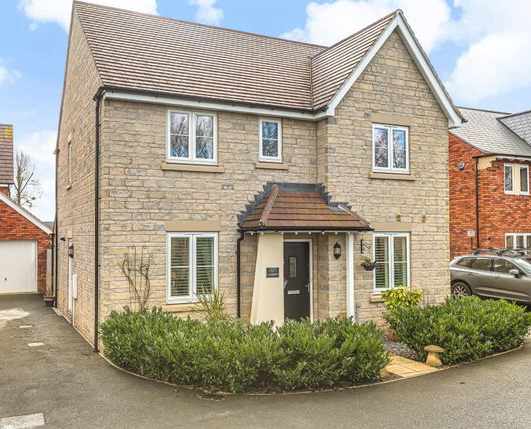

Buying property in the UK?
Paul Phillips, a Chartered Building Surveyor with over 24 years’ experience working in the United Kingdom property industry, gives us some insights into the very basic concepts of buying property in the UK and some of the pitfalls that potential international purchasers should consider before signing on the dotted line.
Having a little bit of knowledge about the United Kingdom system of property ownership and carrying out due diligence can help avoid higher than necessary costs and ensure that the resale value of the investment is not detrimentally affected when you intend to sell.
Anstey Horne Chartered Surveyors have a wealth of knowledge and experience of dealing with property related issues and can advise potential property purchasers to help ensure that any of the pitfalls of property ownership can be avoided.
Buying Property in the UK
Buying a property in the UK for either investment or for personal occupation has been a popular choice for many decades. With a mix of new state of the art high rise apartments and more traditional and, some say, quaint homes and cottages of varying types, styles and sizes, the UK housing market has something for everyone. The United Kingdom also has over seventy cities, well over a thousand towns and countless villages to choose from.
While there are currently issues with the UK economy owing to the Covid Pandemic, the overall outlook for the UK economy is good and it still has some of the most renowned Universities in the world.
The Rule of Law is the Basis of All UK property Ownership
The law and procedures relating to buying property in the UK is very well established with centuries of common and statutory law giving confidence to purchasers, investors, and developers alike.
Eighty Seven percent of the legal ownership of property in England & Wales, known as “Title” documents are registered on a central publicly available database (HM Land Registry). However, while the legal systems around the world are similar to those of the United Kingdom, there are some distinct differences with regard to the purchase and ownership of property, especially where these relate to the costs of maintenance and most importantly who is legally responsible to carry out and pay for such repairs.
There are some slight differences to the legal systems in Scotland and Northern Ireland which are part of the United Kingdom, but these specific nuances fall outside the scope of this article.
Houses
By far the most common type of property in the UK are houses. Many of these were constructed in the late nineteenth and twentieth century and come in a mix of types such as detached (standalone), Semi Detached (sharing one wall with an adjoining property) or terraced (a row of joined properties).
The majority of such houses tend to be two storey, offering living accommodation, kitchen and dining rooms on the ground floor and sleeping accommodation and sanitary facilities on the first floor. Many such properties also have gardens of various sizes.

Typically, the Title for such a property would be known as Freehold, although there are some exceptions. While this article is not of a legal nature, Freehold title in essence means that the title holder owns the entire property forever. There is no time limit. Subject to complying with legislation relating to development, the Freeholder can alter and maintain their property as they wish.
This means that the title holder is fully responsible for all the maintenance and decoration of the building, fences, and site generally.
Apartments (known as Flats)
In larger towns and cities there are also a large number of apartments. The ownership of the entire block of Apartments will be held on a Freehold Title and the owner is known as a Landlord. However, the legal ownership of individual apartments are held on a ’leasehold’ title which is quite different to a Freehold Title.
Typically, the ownership will only extend to the interior of the flat and will rarely include any or full ownership of the structural walls of the property. The major difference is that a leasehold title is only held for a number of years. This can range from a year to 999 years but nevertheless it is not owned in perpetuity. Short leases should be avoided as they lose value significantly below 90 years. These can be expensive to extend.
Common hold, (joint ownership of both the building and apartments) as common in many other countries does exist but it still quite rare in England & Wales.
A leasehold owner will typically be responsible for the maintenance of the interior of the apartment, and the landlord, the Freehold owner of the whole building, can enforce this on the leasehold owner. Many leases also do not allow any alterations to the property without prior approval from the landlord. If alterations are carried out the Freehold owner can enforce the reinstatement of these at the leaseholder’s own cost. Anstey Horne can advise how to approach the landlord should you wish to alter your property.
By far the most common issue raised by international buyers is that they need to contribute to the maintenance of the main building, block of apartments or even the entire estate. This is known as a “Service Charge”.
Typically, the landlord will have an obligation to repair, decorate and maintain the exterior and common areas of a building but the leaseholders will collectively pay for this depending on the proportion determined by the landlord or sometimes detailed in the lease. However, for larger works, the landlord needs to consult with the leaseholders via a specific process prior to carrying out such works. We can advise if we feel these costs are reasonable and necessary.
As the property is only a leasehold, there is also often a ground rent. This is generally quite low but escalating ground rents should be avoided as they can work out extremely expensive in the long term and will significantly affect re-sale values.
Most blocks of apartments will be managed by an Agent on behalf of a landlord and these will be the purchaser’s main point of contact once they own a property. Some such properties are well maintained, others not so well. It is therefore important that a Chartered Surveyor such as Anstey Horne can advise you on the overall condition of the property prior to purchase.
Maintenance Costs
As the cost of maintenance and repairs in the United Kingdom can be relatively high, it is essential to know the condition of the property and any problems relating to it prior to any agreement to purchase. In the case of a Freehold property the purchaser will bear all of the future costs and therefore it is important the purchaser is aware of these before making an offer to buy a property. In terms of a Leasehold property, it is essential to assess the condition of the entire property as well as the flat to avoid purchasing a property with high service charge costs and potential disputes. This knowledge can also aid a purchaser in negotiating a lower purchase price.
Conveyancing Lawyer (solicitor)
Both the vendor (seller) and the purchaser will need their own lawyer (solicitor) to carry out the legal exchange and completion of purchase contracts. As part of this the Purchaser’s Solicitor should also review the legal documents relating to the property and explain the implications of any repairing obligations, rights of third parties and warranties etc. It is important to ensure that all of the advice is fully understood which can sometimes be challenging when the property industry often use property specific legal terms which may have slightly different meanings and implications in other countries. Purchasers should therefore ensure they ask as many questions as possible to ensure they have a full understanding of the contracts they are entering into. It is also essential to avoid any conflict of interest; to ensure the conveyancing lawyer is not in any way connected to the vendor.
Chartered Building Surveyor
The Chartered Building Surveyor is a professional with expertise in assessing property defects, likely future maintenance, and associated costs.
A Surveyor will carry out a detailed inspection of the property to advise on the condition of the property and provide an overview of what works may be urgently required and or what the purchaser should budget for in the medium and longer term. This is known as a pre-acquisition or building survey. Building Surveyors will also often, in conjunction with the solicitor, view the legal documents relating to the property where these relate to repairs and shared rights over the property. While the United Kingdom does not have an “Approved Professional (AP)” Scheme, Chartered Surveyors are the best placed professionals in the United Kingdom to satisfy this role. The surveyors report will often be used to help reduce the asking price or to provide piece of mind that there are no major problems with the property.
Funding
This article does not address options for funding the purchase in detail. However, if the property cannot be purchased outright, normally a loan known as a mortgage is required. If a mortgage is required, then there may be a Mortgage Companies survey, but this is only for the benefit of the lender. It is a survey that gives the lender an independent confirmation of the property’s value – including checking the prices of similar properties sold in the area. The valuation also tells the lender if there are any features or significant defects that could affect the property’s value.
It is not a detailed inspection for the benefit of the purchaser and is not a Building Survey or Pre-Acquisition Survey as detailed above. If there is a mortgage the mortgage company may be able to re-possess the property if regular re-payments are not made on time.
The United Kingdom also operates a strict Money Laundering policy which has criminal sanctions. Cash purchases can therefore sometimes be difficult and documentary evidence of the source of funds will often be necessary before a conveyancing lawyer can accept the funds.
Insurance
There are two main types of insurance related to buying property in the UK.
Building Insurance
The first is Building Insurance which is generally held by the freehold interest of the property. This tends to insure against unforeseen damage caused by subsidence, water leaks or fire. It does not cover the costs of damage caused by a lack of maintenance. Such insurance is normally mandatory if a mortgage is taken out on the property. If the property is a flat, then the insurance is typically included in the service charge.
Contents Insurance
Contents Insurance covers the owner’s belongings, fixtures, and fittings within a property. This generally pays out if items are stolen but also covers carpets, blinds, and curtains in the event of a leak or a fire. This is not mandatory, but the costs are relatively low.
Tax
There are several different taxes that relate to property. You should always obtain advice from your accountant but in general terms the taxes that apply to residential property are as follows:-
Stamp Duty land Tax (SDLT). This is a purchase tax. The rates for this can change and at the time of writing, it only applies to properties with a sales price of over £500,000.00
Capital Gains Tax. This only applies when you dispose of a property. It is essentially a tax on the increase in value of a property while you have owned it. However, this does not apply if it is your primary residence.
Council Tax: This is a tax for services provided by the Local Government Authority which contributes to local services such as waste collections, schools, libraries, and street lighting etc.
Ancillary Costs
There will be ongoing costs for services that you use at the property such as
GAS (For heating)
Water (Supply & Waste)
Electricity
Telecommunications/TV
These will be normally be based on a contract with bills based on a standing charge and a usage charge. Note that landline telephone calls are charged and are not free as in some countries.
Development
Sometimes known as “off plan”, there has been a growing trend of developers selling apartments in either newly built or refurbished properties.
As these are marketed specifically on the international market, additional due diligence is necessary both from a legal and technical point of view. This ensures that the appropriate documentation is in place and that any construction defects are identified and raised with the vendor prior to agreeing the purchase or the placing of any deposit.
We are also often asked to check that the customisation requested by the clients have been provided and to check floor areas. It is also important to consider warranties and that the property has been built and finished correctly as disputes after purchase can often be difficult to resolve.
How can Anstey Horne help?
Anstey Horne are a British firm of Chartered Surveyors located with over 200 years history in the property industry.
We take pride in developing relationships and trying to understand your objectives to ensure we can give you the all round advice that they need but while ensuring strict confidentiality at all times.
Anstey Horne have a mix of Chartered Building Surveyors and Chartered Building Professionals who can assist with buying property in the UK. We provide advice on the purchase process and assist with pre-acquisition surveys, alterations and maintenance. We can also offer advice on the impact of nearby developments, and Rights of Light issues.
With offices in London, Birmingham and Bristol we work on properties across the whole of the UK.
Services
Pre-Acquisition Surveys
Advice on extensions, refurbishments, and Adaptations
Planned and Reactive Maintenance Advice
Insurance Cost Assessments
Application for Licences for Alterations
Dispute Resolution (Technical) between neighbours, landlords and developers.
Please see our Building Consultancy page for further details. Also, check out our article on commercial lease repair obligations.
Contact
For more help or information on buying property in the UK please contact :
BSc (Hons) MRICS, C.Build E MCABE,
Chartered Building Surveyor & Chartered Building Engineer.
DD : 020 7947 0957
M : 07976 412 371

